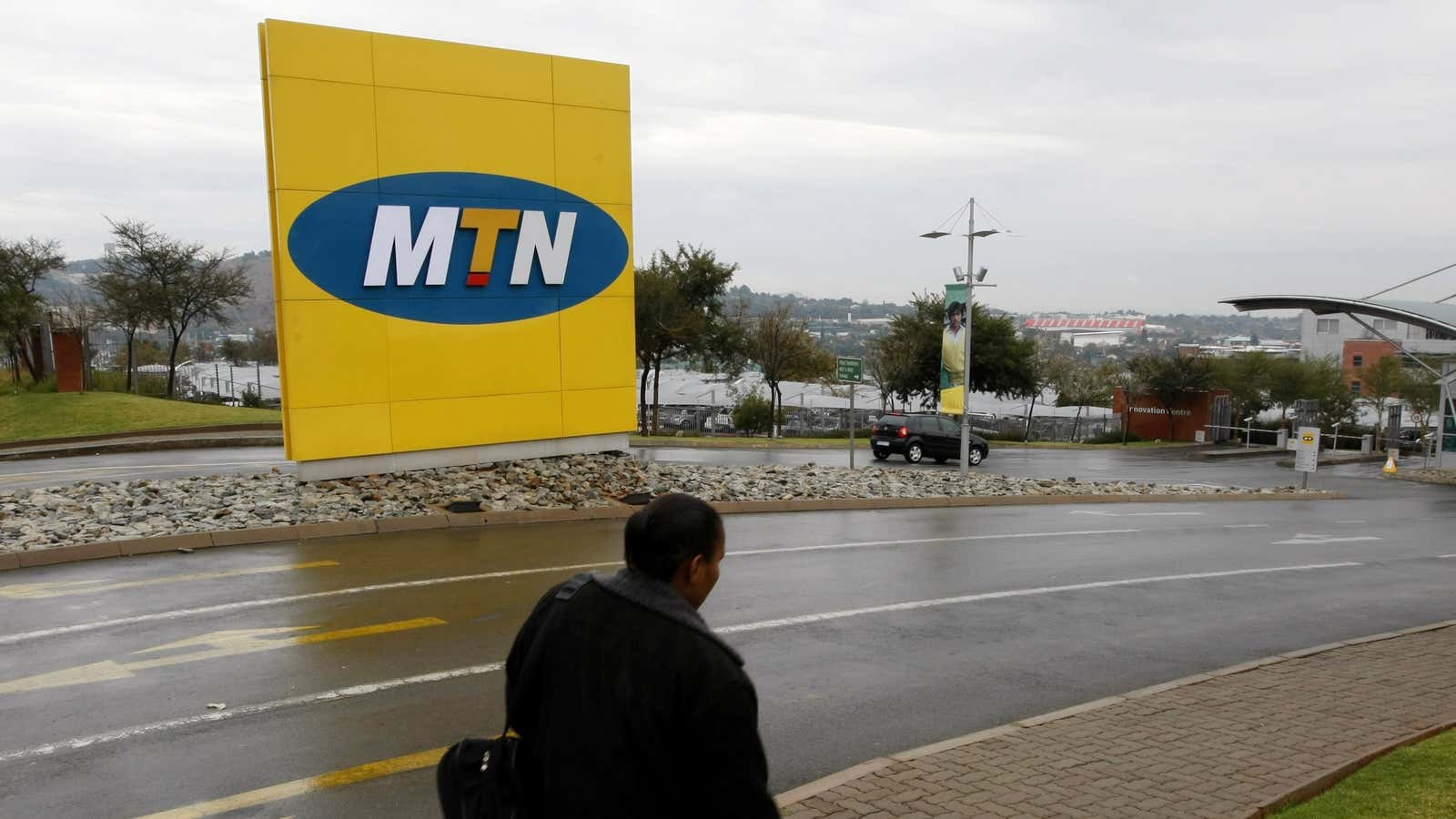Nigeria’s sim card registration laws have dealt a heavy blow to Africa’s largest mobile network, MTN. In a notice sent out to its shareholders today, MTN confirmed that the Nigerian Communications Commission (NCC) fined it $5.2 billion for failing to disconnect 5.1 million unregistered sim cards before the end of the August and September deadlines, as set by the NCC.
MTN’s shares declined by as much as 12% on Monday on the Johannesburg Stock Exchange—the biggest one-day drop since November 1998, acccording to Bloomberg. Though MTN has said it is working with the Nigerian regulator to resolve the matter, there is a concern with investors that the South African telco might have to cough up the full fine.
“Its an extremely punitive fine,” said Dobek Pater of Africa Analysis. “The regulator has approached the matter in a quite heavy-handed way, but there seems to be no outright objection from MTN in the announcement of the fine. I think MTN will opt to enter into negotiations with the NCC.”
According to MTN’s the average revenue per user (ARPU) each month in Nigeria has steadily declined to around $4.99 in the three months to Sept. 30. NCC is effectively fining MTN $1,000 for each of the disconnected lines. MTN said it had reconnected 3.4 million of the customers with registered sim cards by the end of September.
In a bid to have more subscribers on their books, many telcos have sold some unregistered sim cards without obtaining any subscriber information since GSM network services were launched in the country in 2001. This makes it difficult for Nigerian authorities to investigate and resolve crimes that have been committed by users of unregistered sim cards.
Since 2011, Nigeria’s NCC has compelled telcos to register the sim cards of its subscribers—by obtaining biometric information, identity documents, photographs and other information—this in an attempt to track and curb criminal activities carried out over mobile networks. Other African countries have introduced similar rules to help thwart fraudsters and even terrorist plots.
MTN’s results for the three months to Sept. 30 show how MTN’s subscriber base declined to 62.5 million in Nigeria. The company said that it would be cutting its subscriber forecast in Nigeria for the year, after it was set to lose the 5.1 million unregistered subscribers.
MTN is Nigeria’s biggest mobile network and Nigeria is also MTN’s biggest market. Africa Analysis’s Pater said that market dominance might have influenced the regulator’s decision to impose a hefty fine as way to discourage uncompetitive behavior and encourage compliance.
But with declining average revenue per user (ARPU) figures for MTN Nigeria, operating in Africa’s biggest economy has been a bit of bumpy ride in recent months.
Over the past year, the South African-headquartered company has had to deal with the devaluation of Nigeria’s currency, the Naira, as well as a crippling national fuel crisis in May this year, which left many businesses left in the lurch—a blow for the operator, as it spends at least $40 million annually on diesel in Nigeria. On the regulatory front, the company is faced with a ban on promotional pricing which has made it difficult for the company to offer competitive rates to its subscribers.
MTN Group’s spokesperson, Chris Maroleng, declined to comment on the fine.
